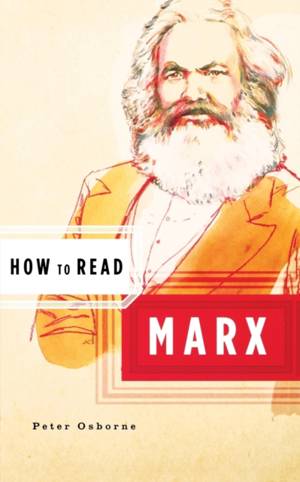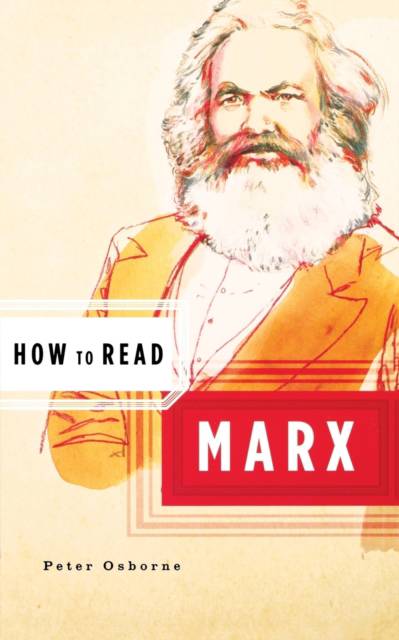
Bedankt voor het vertrouwen het afgelopen jaar! Om jou te bedanken bieden we GRATIS verzending (in België) aan op alles gedurende de hele maand januari.
- Afhalen na 1 uur in een winkel met voorraad
- In januari gratis thuislevering in België
- Ruim aanbod met 7 miljoen producten
Bedankt voor het vertrouwen het afgelopen jaar! Om jou te bedanken bieden we GRATIS verzending (in België) aan op alles gedurende de hele maand januari.
- Afhalen na 1 uur in een winkel met voorraad
- In januari gratis thuislevering in België
- Ruim aanbod met 7 miljoen producten
Zoeken
Omschrijving
Emphasizing the Romantic heritage and modernist legacy of Karl Marx's writings, Peter Osborne presents Marx's thought as a developing investigation into what it means, concretely, for humans to be practical historical beings.
Drawing on passages from a wide range of Marx's writings, and showing the links among them, Osborne refutes the myth of Marx as a reductively economistic thinker. What Marx meant by "materialism," "communism," and the "critique of political economy" was much richer and more original, philosophically, than is generally recognized. With the renewed globalization of capitalism since 1989, Osborne argues, Marx's analyses of the consequences of commodification are more relevant today than ever before.
Extracts are taken from the full breadth of Marx's writings, including Notebooks on Epicurean Philosophy, the Economic and Philosophical Manuscripts, and The Communist Manifesto to Capital.
Drawing on passages from a wide range of Marx's writings, and showing the links among them, Osborne refutes the myth of Marx as a reductively economistic thinker. What Marx meant by "materialism," "communism," and the "critique of political economy" was much richer and more original, philosophically, than is generally recognized. With the renewed globalization of capitalism since 1989, Osborne argues, Marx's analyses of the consequences of commodification are more relevant today than ever before.
Extracts are taken from the full breadth of Marx's writings, including Notebooks on Epicurean Philosophy, the Economic and Philosophical Manuscripts, and The Communist Manifesto to Capital.
Specificaties
Betrokkenen
- Auteur(s):
- Uitgeverij:
Inhoud
- Aantal bladzijden:
- 146
- Taal:
- Engels
- Reeks:
Eigenschappen
- Productcode (EAN):
- 9780393328783
- Verschijningsdatum:
- 1/04/2006
- Uitvoering:
- Paperback
- Formaat:
- Trade paperback (VS)
- Afmetingen:
- 128 mm x 195 mm
- Gewicht:
- 154 g

Alleen bij Standaard Boekhandel
+ 53 punten op je klantenkaart van Standaard Boekhandel
Beoordelingen
We publiceren alleen reviews die voldoen aan de voorwaarden voor reviews. Bekijk onze voorwaarden voor reviews.









